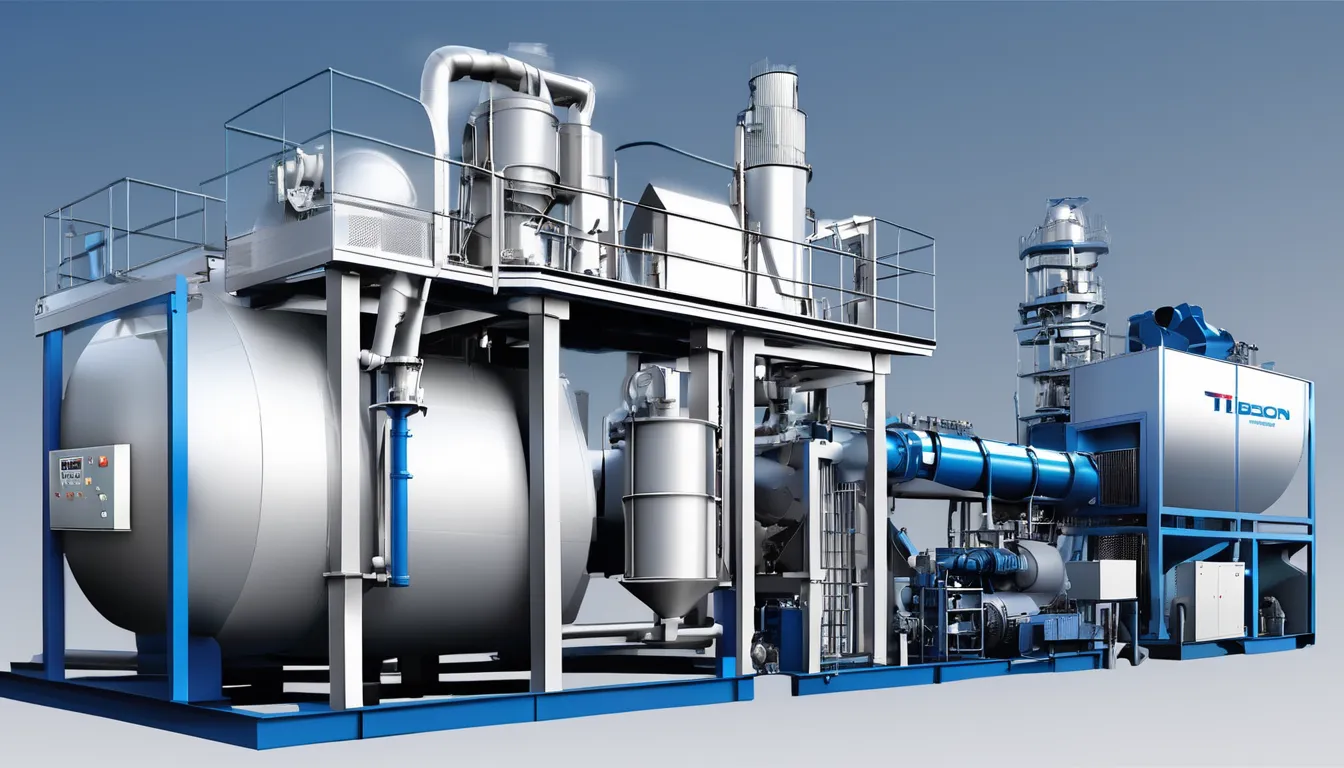You might be surprised to learn how turbo expanders play a crucial role in energy savings across various industries. By converting high-pressure gas into mechanical energy, these devices capture energy that would typically go to waste, ultimately lowering operational costs. Their applications range from oil and gas to power generation, each contributing to greater efficiency and reduced emissions. But what exactly makes turbo expanders so effective, and how can they help your organization achieve its energy goals? The answers could reshape your understanding of energy efficiency.
Understanding Turbo Expanders
Understanding turbo expanders begins with recognizing their role in energy efficiency. These devices are designed to recover energy from high-pressure gas streams, converting that energy into usable mechanical power. When you incorporate turbo expanders into your system, you can significantly reduce energy costs, making your operations more sustainable.
You might find turbo expanders in various applications, such as natural gas processing, LNG plants, and even in power generation. By harnessing the energy that would otherwise be wasted, these expanders help optimize processes. They operate efficiently at high flow rates, ensuring you get the most out of your energy resources.
Moreover, Turbo Expander manufacturer s contribute to reducing greenhouse gas emissions. When you decrease energy waste, you naturally lower the carbon footprint of your operations. This not only benefits the environment but also aligns with many companies’ sustainability goals.
Incorporating turbo expanders can also lead to improved system reliability. Since they convert energy rather than consume it, they can enhance the overall performance of your system.
In short, understanding turbo expanders is crucial for anyone looking to improve energy efficiency and sustainability in their operations.
Mechanism of Energy Conversion
Turbo expanders operate on a straightforward principle that enables them to convert energy efficiently. By harnessing the energy from a high-pressure gas as it expands, these devices transform thermal energy into mechanical energy. This process can significantly optimize energy utilization in various applications.
Here’s how the energy conversion mechanism works:
- Gas Expansion: When the high-pressure gas enters the turbo expander, it begins to expand rapidly. This expansion reduces its pressure and temperature while increasing its velocity.
- Turbine Rotation: As the gas expands, it flows over the turbine blades. The force of the moving gas causes the turbine to rotate, converting the thermal energy into mechanical energy.
- Energy Recovery: The mechanical energy generated by the turbine can then be harnessed to drive generators or compressors, allowing you to recover and utilize energy that would otherwise be wasted.
Applications in Various Industries
Across multiple industries, turbo expanders play a crucial role in enhancing energy efficiency. In the oil and gas sector, they’re commonly used in natural gas processing plants, where they help recover energy from expansion processes. When you harness this energy, you can significantly reduce operational costs and improve overall efficiency.
In the chemical industry, turbo expanders are vital for cryogenic applications, particularly in the liquefaction of gases. By utilizing the Joule-Thomson effect, they help cool gases efficiently, allowing for effective separation processes.
In power generation, you’ll find turbo expanders used in waste heat recovery systems. They convert excess heat into mechanical energy, which can then be used to generate additional electricity, enhancing the system’s overall output.
The refrigeration industry also benefits from turbo expanders, as they help improve the performance of refrigeration cycles. By maximizing energy extraction during gas expansion, these machines allow for more efficient cooling.
Benefits for Energy Efficiency
Implementing turbo expanders in various industries directly leads to significant energy savings. By optimizing the energy conversion process, these devices enhance overall efficiency.
Here are three key benefits you can expect when integrating turbo expanders:
- Increased Efficiency: Turbo expanders convert high-pressure gas into mechanical energy, allowing for a more efficient extraction of energy from the gas stream. This means you can do more with less energy.
- Reduced Waste: By capturing and utilizing energy that would otherwise be lost, turbo expanders minimize energy waste. This not only lowers operational costs but also contributes to a more sustainable energy model.
- Lower Emissions: Utilizing turbo expanders can lead to reduced greenhouse gas emissions. With improved energy efficiency, your operations can become greener, helping you meet environmental regulations and corporate sustainability goals.
Incorporating turbo expanders into your processes isn’t just a smart financial move; it’s a step toward a more efficient, eco-friendly operation.
Future of Turbo Expanders
As industries continue to seek innovative solutions for energy efficiency, the future of turbo expanders looks promising. You’ll notice that advancements in materials and technology are paving the way for more efficient designs. These innovations will enable turbo expanders to operate at higher efficiencies and lower maintenance costs, making them even more attractive for various applications.
With the rise of renewable energy sources and the need for energy storage solutions, turbo expanders could play a crucial role in optimizing energy conversion processes. You might find that as industries invest in cleaner technologies, turbo expanders will be integrated into systems like cryogenic energy storage and gas processing, further enhancing their utility.
Moreover, the ongoing research into artificial intelligence and machine learning can lead to smarter controls for turbo expanders, allowing for real-time optimization and increased performance based on operational conditions.
As you keep an eye on the evolving landscape, remember that turbo expanders are set to become an essential part of your energy-saving strategies in numerous sectors. Embracing these advancements won’t only reduce costs but also contribute to a more sustainable future.
Conclusion
In conclusion, turbo expanders play a crucial role in enhancing energy efficiency across various industries. By converting high-pressure gas into mechanical energy, you can significantly reduce operational costs and minimize waste. Their ability to lower greenhouse gas emissions aligns perfectly with your sustainability goals. As technology advances, turbo expanders are set to become even more vital in our ongoing efforts to achieve eco-friendly practices and maximize energy utilization. Embracing these devices is a smart move for a sustainable future.

